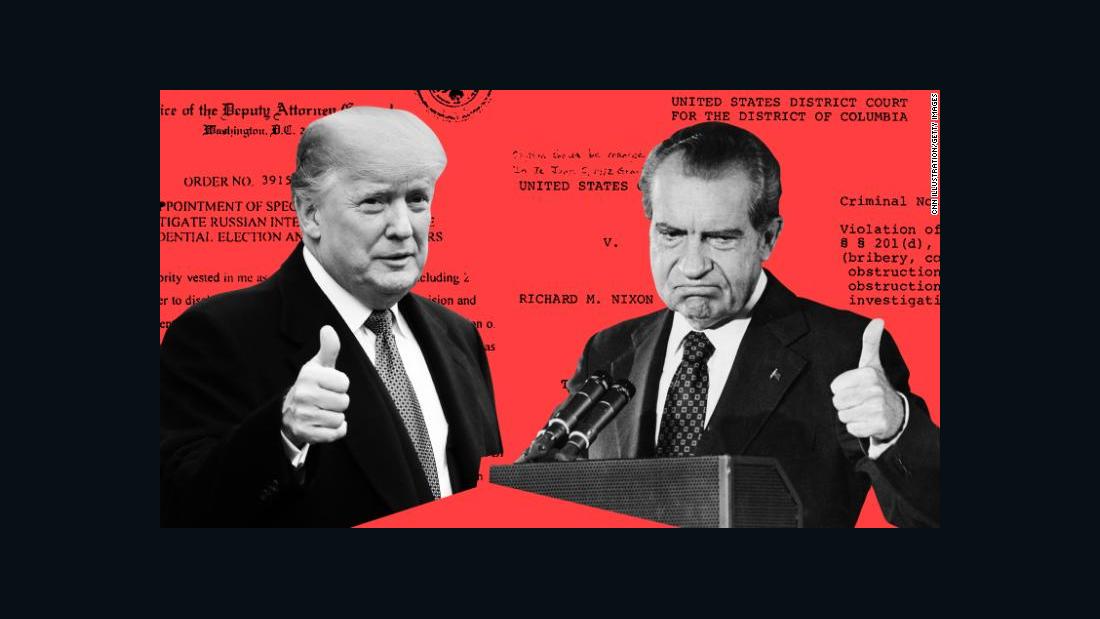The tradition of forgiving a turkey in the White House 0:45
(CNN) -
President Donald Trump has acknowledged, in a way and without admitting defeat, that Joe Biden will take office on January 20 at noon.
Between now and then, we can expect to see the last-minute presidential pardon festival held by most presidents.
And any gambler would think Trump will do it big.
Trump has already commuted the sentence of his informal adviser Roger Stone.
But his former campaign manager Paul Manafort is still in house confinement serving a prison sentence.
His former national security adviser Michael Flynn admitted to lying to the FBI, but has yet to be sentenced and has been trying to withdraw the statement.
There is a long list of other people to whom Trump could also grant the favor of a presidential pardon.
One question that will come up until you step down is whether you could grant yourself that favor.
Trump has repeatedly asked his aides about pardons for himself and his family members and whether he could preemptively issue them, according to a recent CNN report.
Why would Trump need a presidential pardon?
It's very possible that it's an academic question, as Trump doesn't appear to be facing federal criminal investigations currently.
His Attorney General, Bill Barr, has made it clear that he will follow existing Department of Justice guidelines that prevent a sitting president from being charged with a crime.
advertising
However, former Trump attorney Michael Cohen has served time in jail for violating federal campaign finance law to engineer secret money payments in 2016 to women who said they had relationships with the future president.
There is an audio in which Trump discusses the payments.
Perhaps it is conceivable that you could grant yourself a pardon for violating electoral law.
Those payments are also at the center of an investigation into Trump by the Manhattan district attorney.
He has been searching Trump's financial records in a long-running court battle.
But presidential pardons are useless for state crimes.
In terms of these state investigations into his financial affairs and his now-defunct charity, a federal pardon will do him no good in New York state court.
If you get creative, perhaps you could also try using self-forgiveness to deal with a possible future federal tax lawsuit against you.
The Internal Revenue Service (IRS), for example, says it incorrectly claimed a $ 72.9 million tax write-off, according to
The New York Times
on its tax returns.
READ
: ANALYSIS |
Biden reveals his team as Trump's firewall collapses
Trump clearly believes that he has the power to grant himself a pardon.
He said so in 2018, after the Russia investigation concluded, Trump claimed power, but also pointed to the political danger he would face using it.
"As numerous legal scholars have stated, I have the absolute right to GRANT ME FORGIVENESS, but why would I do that when I have done nothing wrong?"
However, as CNN legal analyst Elliot Williams pointed out, self-forgiveness would be admitting some form of guilt.
“A pardon is actually an acknowledgment that a crime or a chargeable crime has occurred.
Therefore, he would not only appear guilty, he would be acknowledging that he committed a crime, ”Williams said during an appearance on CNN on November 12.
To the extent that there is an open question about self-forgiveness, it is because no other president of the United States had the audacity to think that he could do it.
The Constitution does not expressly prohibit it in writing, although it does prohibit pardons in impeachment cases.
But that doesn't mean Trump can do it.
The rules go back to Richard Nixon
There was a legal memorandum written by the Justice Department's Office of Legal Counsel just days before Nixon's resignation in 1974 that argued that a president could not forgive himself.
The Justice Department's position was quite simple: "Under the fundamental rule that no one can be a judge in his own case, it would appear that the question should be answered in the negative."
That is a legal opinion, not a law.
But just like the view that a sitting president cannot be charged with a crime, these things take on the feel of a precedent.
Instead, Nixon's successor and former vice president, Gerald Ford, gave his former boss an unconditional pardon a month later, likely thwarting Ford's ambition to be elected president.
Ford made an expansive statement, wiping Nixon's slate and delivering "a full, free, and absolute pardon to Richard Nixon for all crimes against the United States that he, Richard Nixon, has committed or may have committed or participated in during the period between January 20, 1969 and August 9, 1974 '.
LOOK
: What does Biden's transition represent without Trump's official recognition?
What are Trump's other options?
Trump has other moves available to him, according to the memo.
He could, like Nixon, resign and hand over power in his final days to Vice President Mike Pence, who could grant him a pardon.
He could even temporarily cede power to Pence under the 25th Amendment and allow Pence, as acting president, to grant him a pardon.
"The problem is that this is fraught with danger politically for Mike Pence, because ultimately he would be running into a political time bomb," said Williams, noting that Pence clearly might want to run for president on his own.
It could also expose Pence to bribery charges if he and Trump had a pardon agreement.
Pence would receive something of value, the presidency, even for a short time, in exchange for an official act.
Donald trump

